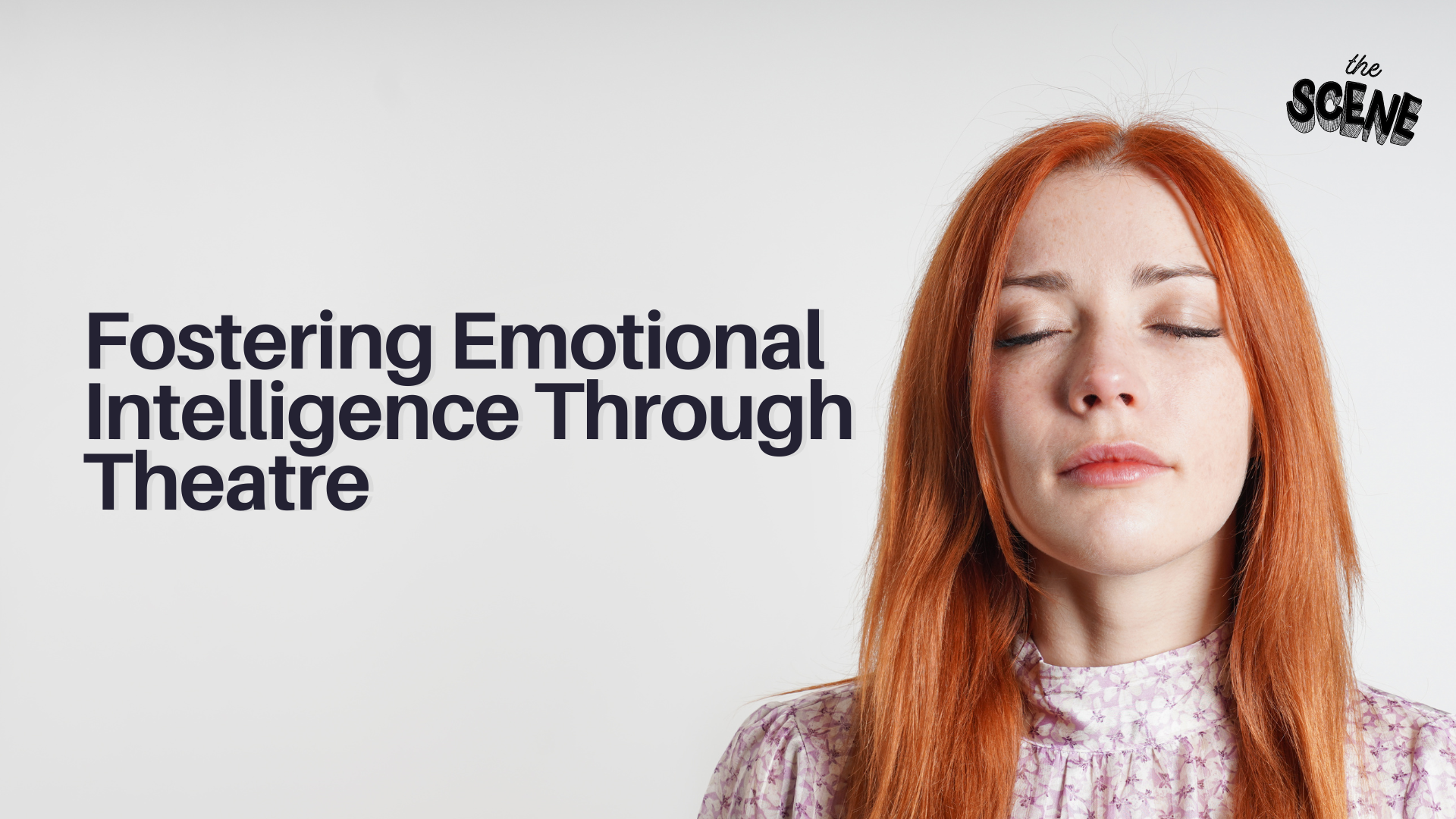How participation in theatre can develop emotional intelligence in students.
by Zach Dulli, The Scene
In today’s fast-paced world, emotional intelligence plays a crucial role in personal growth and success. It goes beyond book smarts or academic achievements; it encompasses understanding our own emotions as well as empathizing with others. And what better way to cultivate these essential skills than through the magic of theatre?
Now you might be wondering: What exactly is emotional intelligence? Well, think of it as your ability to recognize and manage your own feelings while also understanding the emotions of those around you. It’s like having an emotional compass that guides you through life’s ups and downs with grace and empathy.
You might also be thinking: Why on earth does emotional intelligence matter in education? Well, research has shown that students who possess high levels of emotional intelligence are more likely to excel academically, establish healthier relationships with peers and adults alike (goodbye drama!), handle stress effectively (adios anxiety!), and even exhibit better problem-solving skills. All crucial skills needed for success both inside and outside the classroom! So, if we want our future generation to thrive holistically – mind AND heart united – then fostering emotional intelligence should be at the forefront of any educational agenda.
This is when theatre swoops in like a shining knight on a mission to develop these critical skills in students from all walks of life. From cultivating empathy on stage to enhancing self-awareness behind the scenes, theatre provides an immersive experience where emotions run wild – helping students become more emotionally intelligent individuals.
The Relationship Between Theatre and Emotional Intelligence
One way theatre cultivates emotional intelligence is by allowing us to step into someone else’s shoes. Through the art of storytelling, actors learn empathy as they embody different characters and experience their struggles and triumphs. This deep understanding of others’ perspectives helps build compassion and sensitivity towards others.
In addition to fostering empathy, theatre also promotes self-awareness. As performers explore various roles, they gain insights into their own emotions, motivations, and reactions. This heightened self-awareness allows them to better understand themselves on a deeper level, leading to personal growth and improved emotional regulation.
It’s clear that there is a strong relationship between theatre participation and emotional intelligence development. By immersing ourselves in the world of acting, we not only enhance our ability to empathize with others but also deepen our understanding of ourselves. So next time you watch a play– remember that you’re not just enjoying entertainment; you’re building your emotional intelligence, too!
How Theatre Can Cultivate Empathy
When you’re on stage, you have to embody different characters with unique perspectives and emotions. It’s like walking a mile in someone else’s shoes. In one moment, you could be a brave hero saving the day; in the next, a heartbroken lover crying rivers of tears. Through these transformations, theatre helps students develop an understanding and appreciation for diverse experiences and feelings. You start to realize that everyone has their own story to tell and struggles to overcome.
Theatre also allows students to witness firsthand how their actions impact others. As they interact with fellow actors on stage or collaborate behind the scenes, they learn about teamwork and compromise. They see how small gestures of support or kindness can make all the difference in creating a positive environment.
Theatre is like an empathy gymnasium where students flex their emotional muscles by diving deep into characters’ lives while simultaneously connecting with those around them.
How Theatre Helps Develop Self-Awareness
If you ever find yourself wondering who you really are? Don’t worry, it’s a question we all ponder from time to time. But did you know that participating in theatre can actually help develop self-awareness? That’s right, the stage is not just for entertainment; it’s also a powerful tool for personal growth!
In theatre, actors are constantly exploring different characters and emotions. They have to dig deep within themselves to understand their own thoughts and feelings. This process of introspection allows them to become more aware of their own strengths, weaknesses, and motivations.
So next time you’re feeling lost or uncertain about who you are, consider stepping onto the stage! Whether it’s through acting classes or joining a local community theater group, engaging in theater can be an enlightening experience that fosters self-awareness like no other. Take center stage in your own life and discover the incredible person hiding within!
Conclusion
So, there you have it! We’ve explored the wonderful world of theatre and its powerful impact on developing emotional intelligence in students. From cultivating empathy to fostering self-awareness, theatre truly has a knack for nurturing those valuable emotional abilities.
The potential of theatre is boundless when it comes to fostering emotional intelligence in students. Let’s embrace this creative art form as a powerful tool for personal growth and meaningful connections. Go ahead – step into the spotlight and let your emotions shine!









